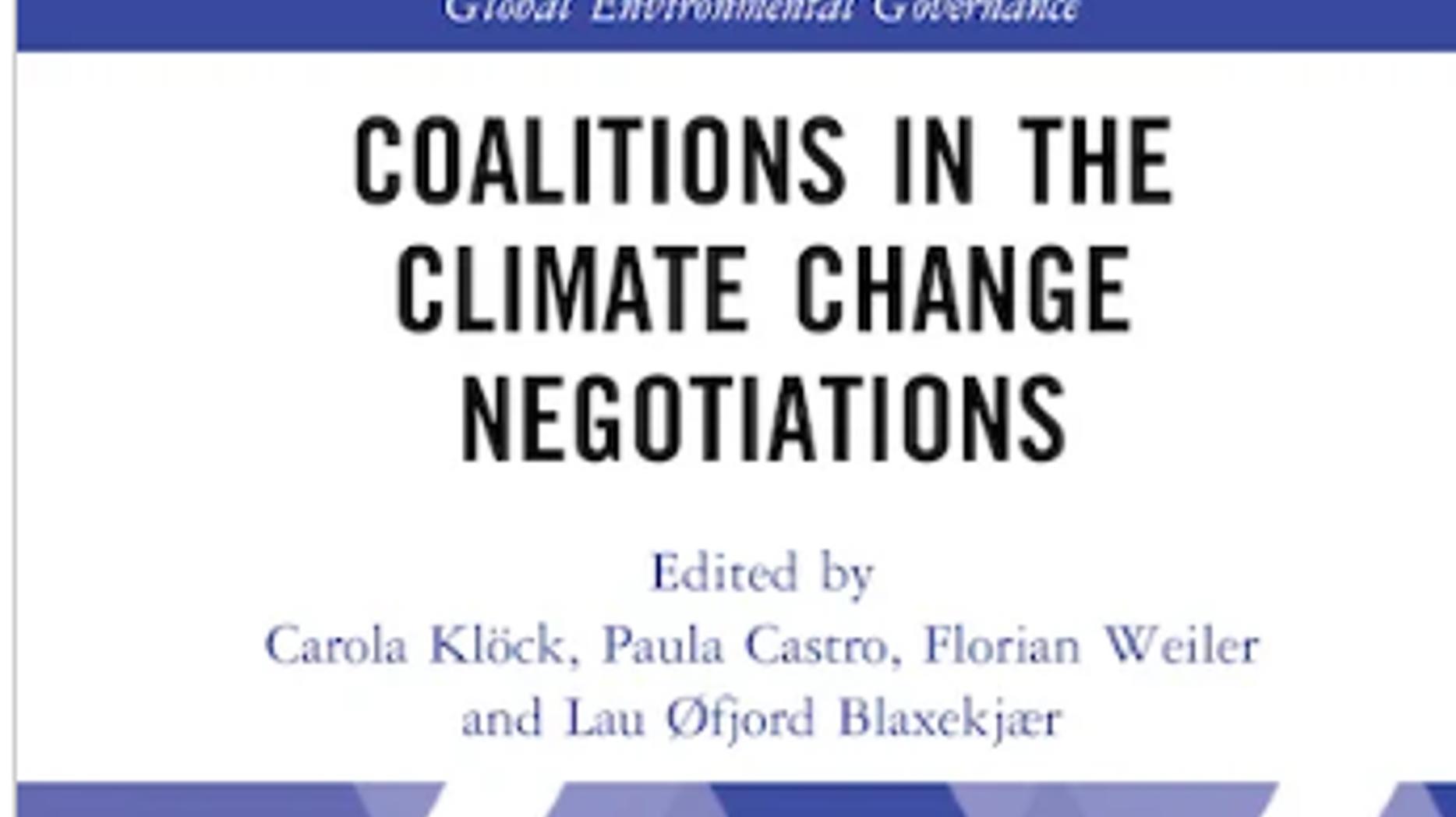
New Release: Coalitions in the Climate Change Negotiations
This edited volume provides both a broad overview of cooperation patterns in the UNFCCC climate change negotiations and an in-depth analysis of specific coalitions and their relations
This book is an important contribution to scholars, students, diplomats, and journalists who seek to understand coalitions in climate change negotiations. The book is first of its kind to analyse and compare the many coalitions in climate change negotiations.
Coalitions—political groups of like-minded countries that work together—are a fundamental characteristic of multilateral negotiations such as those under the United Nations Framework Convention on Climate Change (UNFCCC). However, coalitions, their development and dynamics, have escaped most of the research on climate negotiations, which this book seeks to remedy.
While coalitions have thus been a central element of climate negotiations since their inception, the landscape of climate coalitions has changed dramatically over time, with a plethora of partly overlapping coalitions emerging, notably within the group of developing countries.
Why do we see such a fragmentation of the negotiations? To what extent is this the result of functional integration and spill-over from the many issues on the climate agenda? Which coalitions have been created, by whom, when, and why? How do coalitions differ from each other, and how can we characterise coalitions as a specific form of cooperation? What consequences does the fragmentation into ever more coalitions have for the negotiation process and its outcome?
Despite their importance, the changing coalition dynamics in the climate negotiations have not yet been addressed comprehensively in the negotiation or climate literatures. We still lack a broad overview of the coalitions that have emerged over time, including those that are dormant or even disappeared, as well as an understanding of the causes and effects of their emergence and development.

This book emerged after the co-editors put together a conference panel on “Coalitions, cooperation and conflict in the climate change negotiations” for the 2018 Earth System Governance conference in Utrecht.
Affiliated Teaching Lecturer at the Faculty of History and Social Sciences at the University of the Faroes Islands, Lau Øfjord Blaxekjær, then suggested to turn the papers into an edited volume. Lau contributed to the book as a co-editor as well as co-authoring the book's introduction and two chapters. Lau also authored one chapter.
This book is essential reading for researchers, students, diplomats, and journalists working on climate change negotiations.
This edited volume provides both a broad overview of cooperation patterns in the climate change negotiations and an in-depth analysis of specific coalitions and their relations. While the fragmentation of the climate change negotiations, and particularly of developing countries within these negotiations, has often been noted, it has not yet been studied in depth and comprehensively. Since coalitions are a fundamental feature of multilateral (climate) diplomacy, understanding coalition formation, maintenance, development and and practices helps us understand overall negotiation dynamics and outcomes. The edited volume therefore seeks to unpack the growing number of coalitions in the climate change negotiations.
The first part provides a general overview of climate coalitions and patterns of cooperation and conflict within UNFCCC negotiations, and thus lays out the overall framework. The second part then focuses on individual coalitions and negotiation groups that have emerged in the recent rounds of negotiations after 2005. The chapters explore their origins, strategies, internal dynamics and effects on the overall negotiations. The conclusion reflects and brings together the findings from the individual chapters.

Read more here.



